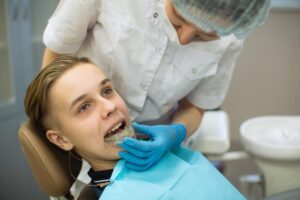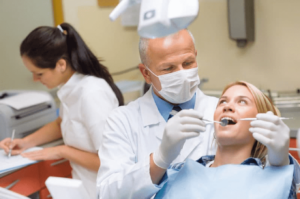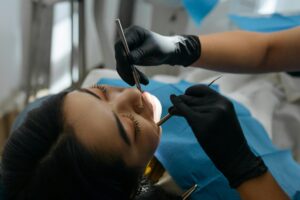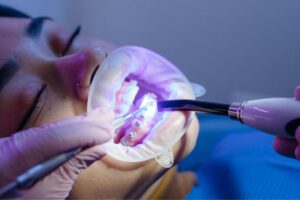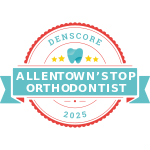Tooth enamel is the clear outer layer of the tooth. You can think of enamel as a tough eggshell protecting the soft part of the tooth inside, in fact, enamel is the hardest substance in the body. Dr. Robert Bryan of Dr. Bob Bryan Orthodontics in Hamburg, PA, stresses that damage to enamel is permanent and can cause a number of teeth issues.
Here’s 6 things that destroy tooth enamel:
1. Acids from foods and bacteria eat away at enamel causing erosion, the shrinking of tooth size, and cavities. This is the same for drinks like sodas, sweet teas and wine.
2. Dentin, the hard, dense, bony tissue forming the bulk of a tooth beneath the enamel, is what makes enamel seem white. Dr. Bryan warns that over time, coffee, tea, wine, cigarettes and other substances can stain the outer layer of your teeth a yellow or gray. Don’t forget that these things can also stain your Invisalign® aligners and should be avoided with them in.
3. Bruxism, or teeth-grinding, over time can wear down or fracture the enamel. Dr. Bryan offers patients mouth guards if they have a teeth-grinding habit.
4. Enamel can be chipped or cracked, again, such damage to the enamel is permanent. Dr. Bryan warns that using your teeth as tools and/or gnawing on anything can chip or crack the enamel. Moreover, when this happens the inner layer gets exposed and this leads to tooth decay and sensitivity.
5. Some health conditions can damage tooth enamel, e.g., the eating disorder bulimia causes stomach acid to enter the mouth because of frequent vomiting and those acids eat away at tooth enamel. Dr. Bryan warns that acid reflux, stomach problems, and other eating disorders can also have this effect.
6. Dry mouth allows acids to stick around longer and causes damage to enamel. Dr. Bryan reminds us that saliva helps restore tooth enamel, therefore if you have dry mouth chewing sugar-free gum, sucking on sugar-free candy or drinking water can build saliva.
To fight tooth enamel erosion always remember to brush and floss after you eat or drink, and if you have any questions or concerns don’t hesitate to contact our practice at 610.562.5185.


